“Has anyone heard of the word ‘organic’”? I asked my trail group to begin our discussion of pollution in our Water Wonders class.
“Yeah! It’s the food my mom buys at the grocery store,” replied one of the students.
Though correct, this wasn’t the response I was looking for and made me think about how often the word ‘organic’ is thrown around. Because organic isn’t just food, and it’s not all good.
We use the term “organic” to describe not only food from the store, but also as a catch-all to describe chemistry, pollutants, business practices, plant matter, farming, computing, law…the list could go on and on. Don’t believe me? Do a Wikipedia search on ‘organic’ and you’ll be taken to a page with over 20 different categories for the term.
As an organic chemist by training, my prior familiarity of the term ‘organic’ centered mainly on smelly chemical compounds containing carbon. So what does ‘organic’ mean in the context of a water pollution discussion?
Organic ‘water’ pollution is a massive category in and of itself. Organic pollutants vary from human or animal fecal matter to pesticides, food waste, high density of plant matter, detergents, pharmaceutical drugs, fuels, all the way to those scary chemical names nobody truly knows how to pronounce.1
Some of these pollutants are thankfully able to be broken down through different chemical, biological or photosynthetic processes, but not all organic pollutants are that easily dealt with.
Persistent organic pollutants (POPs) are such compounds that do not degrade by any of the former processes and thus remain persistent in the environment. 2 Most POPs are man-made chemicals such as pesticides or byproducts of industrial chemicals or pharmaceuticals, though there are some naturally occurring POPs stemming from vegetational fires and volcanic activity. These compounds are able to withstand long range transport and have been known to bioaccumulate in human and animal tissue as well as in food chains. This has a huge impact on human health and the environment.
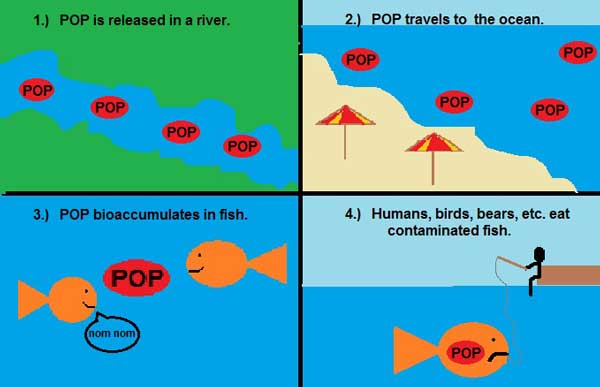 One famous example of POPs is Dichlorodiphenyltrichloroethane, otherwise known as DDT. DDT was widely used in the 1940s and 1950s as an insecticide for crops. It was remarkably efficient and contributed to the eradication of malaria in the United States. But there was a huge problem with DDT that scientists at the time neglected to study in depth- its chemical lifespan. DDT could remain in soil and water without undergoing severe degradation for up to 15 years- quite a long life for a chemical 3
One famous example of POPs is Dichlorodiphenyltrichloroethane, otherwise known as DDT. DDT was widely used in the 1940s and 1950s as an insecticide for crops. It was remarkably efficient and contributed to the eradication of malaria in the United States. But there was a huge problem with DDT that scientists at the time neglected to study in depth- its chemical lifespan. DDT could remain in soil and water without undergoing severe degradation for up to 15 years- quite a long life for a chemical 3
Through the water supply, DDT travelled to places thousands of miles away where the pesticide had never been used. DDT residues have even been found as far as the Artic and this POP almost wiped out the entire bald eagle population.
Although DDT had no devastating effects on humans, should we worry that an event like this might happen to humans? You bet. After DDT was recognized as harming an ecosystem far removed from its origin, a global ban was placed on the so called “Dirty Dozen”, 12 POPs that could have long lasting effects on humans. 4
Most times we use the word “organic” as an adjective, and you need to understand how it modifies the rest of the items in the sentence. Though the term organic is used popularly as a “catch all” for foods that we deem healthy or trendy, in terms of water pollution it is quite the opposite. Organic pollution and persistent organic pollutants have devastating effects on the environment and all the way up the food chain.
At High Trails Outdoor Science School, we literally force our instructors to write about elementary outdoor education, teaching outside, learning outside, our dirty classroom (the forest…gosh), environmental science, outdoor science, and all other tree hugging student and kid loving things that keep us engaged, passionate, driven, loving our job, digging our life, and spreading the word to anyone whose attention we can hold for long enough to actually make it through reading this entire sentence. Whew…. www.dirtyclassroom.com
- Water Pollution, Wikipedia, http://en.wikipedia.org/wiki/Water_pollution ↩
- Persistent Organic Pollutant, Wikipedia, http://en.wikipedia.org/wiki/Persistent_organic_pollutant ↩
- Persistent Organic Pollutants: A Global Issue, A Global Response, http://www2.epa.gov/international-cooperation/persistent-organic-pollutants-global-issue-global-response ↩
- “STOCKHOLM CONVENTION ON PERSISTENT ORGANIC POLLUTANTS”
(http://chm.pops.int/Portals/0/Repository/convention_text/UNEPPOPSCOPCONVTEXTFULL.
English.PDF). pp. 1–43. ↩

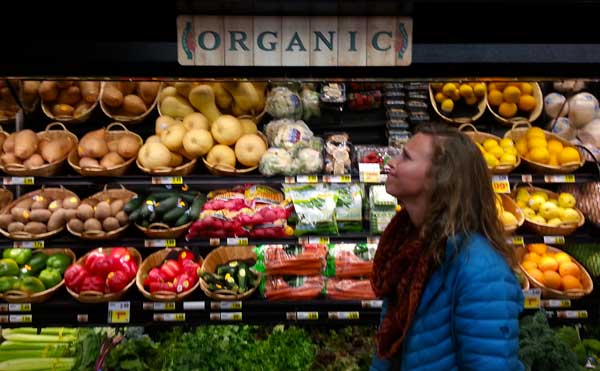
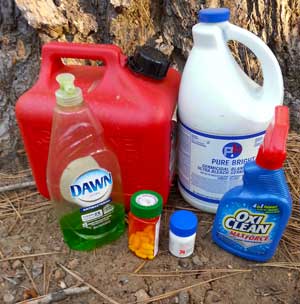
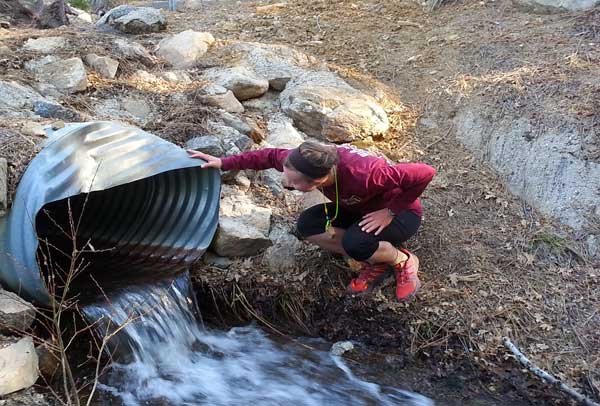

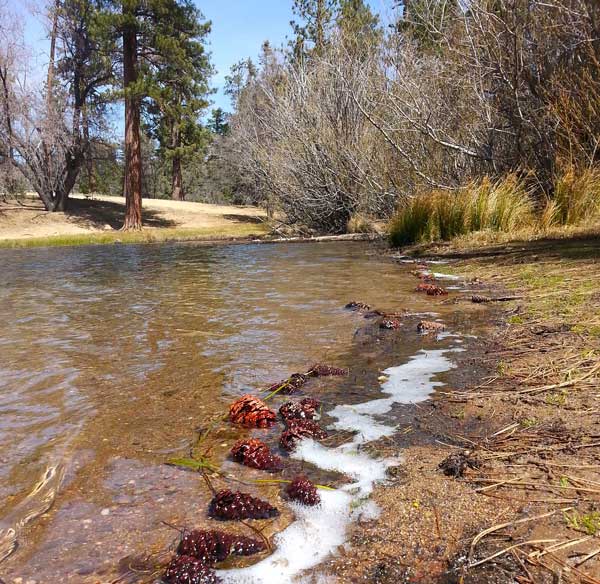
Comments are closed.